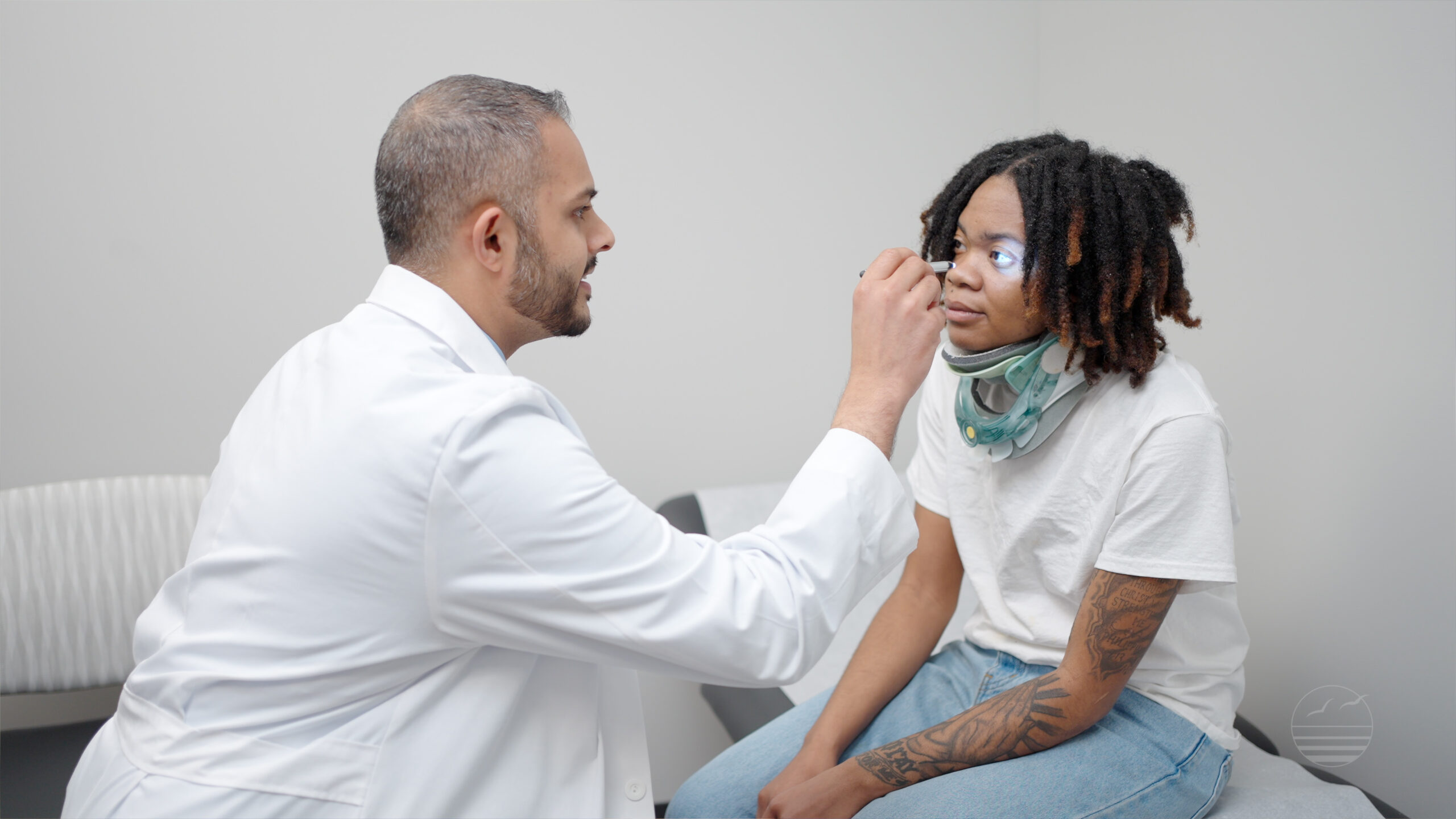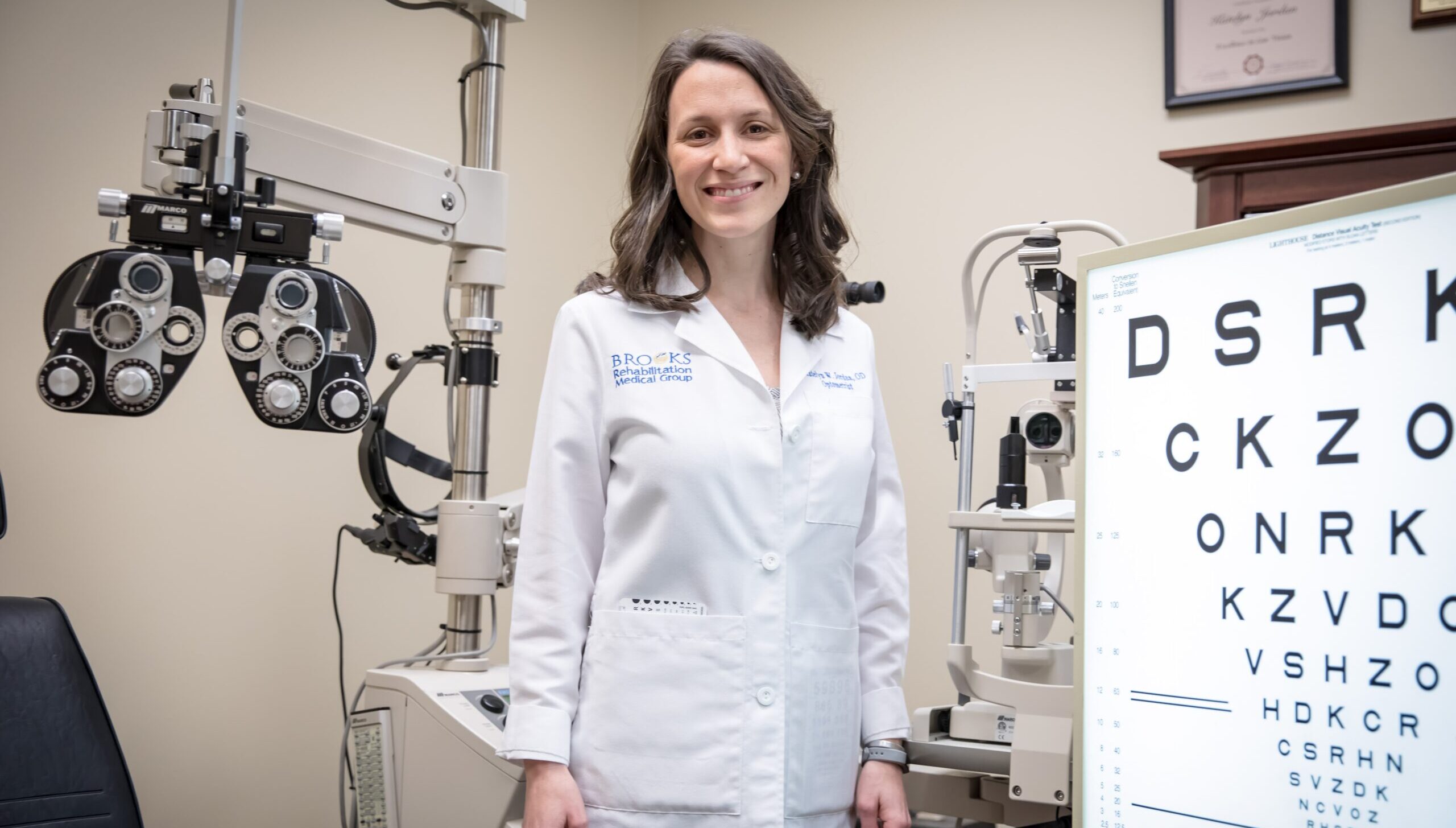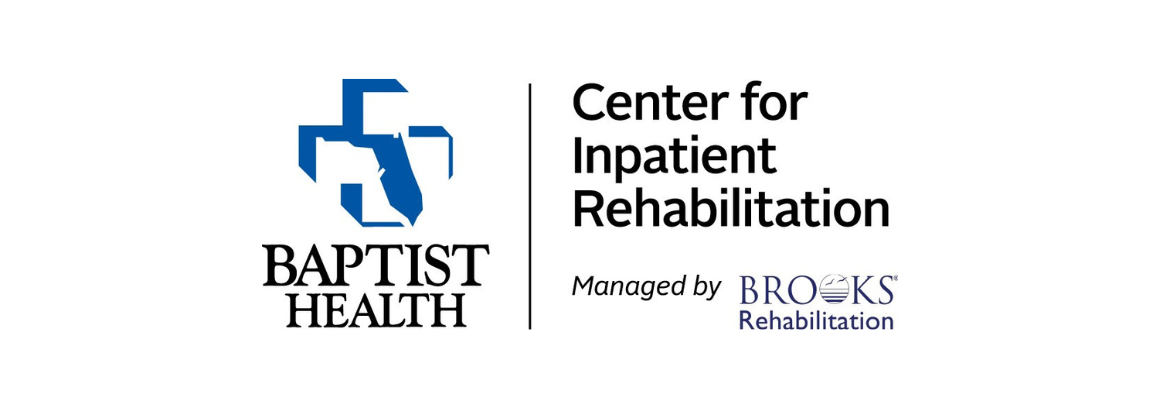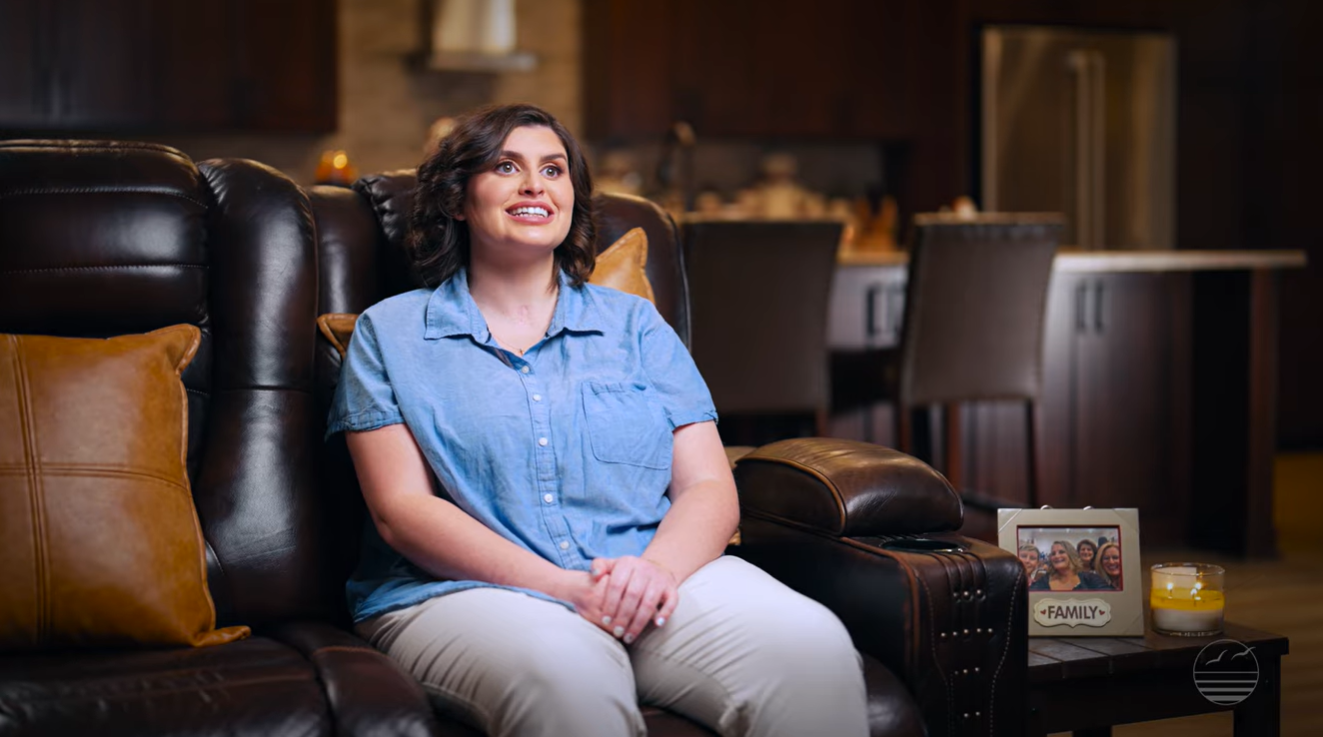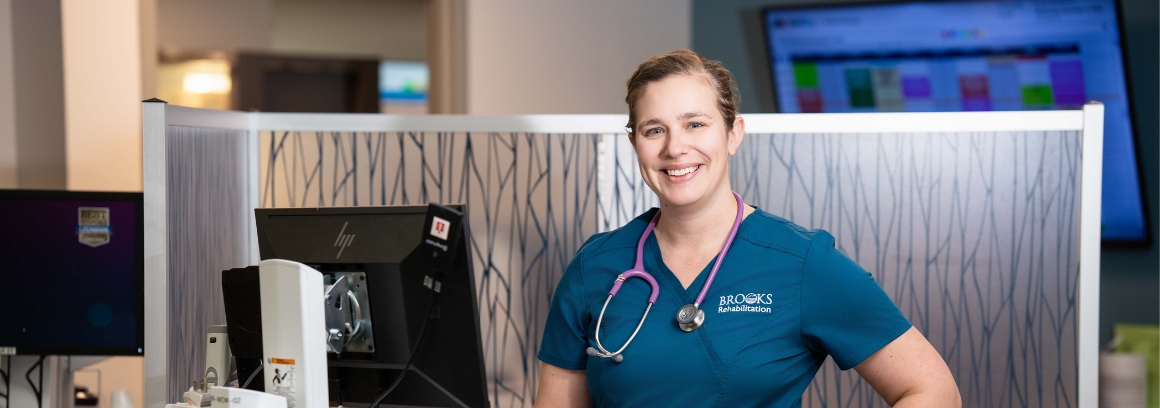What is a brain injury?
A brain injury is damage to the brain that affects how it works. It can be caused by a blow to the head, lack of oxygen or medical conditions like a stroke. Symptoms may affect thinking, movement, or emotions, depending on the severity.
Brain injury symptoms
There are many possible brain injury symptoms. Some may go away on their own, while others require rehabilitation to help you cope.
You may experience:
- Balance issues
- Confusion, difficulty concentrating or memory loss
- Dizziness
- Headaches
- Mood swings or irritability
- Sensitivity to light or sound
- Sleep disturbances
Types of brain injuries we treat
Some of the conditions we treat include:
Anoxic brain injury
An anoxic brain injury happens when the brain isn’t getting oxygen. This can occur due to cardiac arrest, choking or near-drowning. Because the brain needs a constant oxygen supply to function, damage can occur even after a short period. Read more about anoxic brain injury.
Concussion
A concussion is a mild traumatic brain injury caused by a blow or jolt to the head. It can affect memory, balance and mood — even if you don’t lose consciousness. Most people recover fully, but sometimes, symptoms last longer than expected. Find out more about concussion recovery.
Disorders of consciousness (DoC)
These conditions include coma, vegetative state or minimally conscious state and are often the result of a severe brain injury. They may affect your ability to wake up, respond or interact with your surroundings. In some cases, subtle signs of awareness may emerge over time. Learn more about disorders of consciousness.
Hypoxic brain injury
A hypoxic brain injury happens when the brain is not getting enough oxygen to keep up with the body’s needs. It may be caused by respiratory failure, low blood pressure or complications during surgery. Read more about hypoxic brain injury.
Non-traumatic (acquired) brain injury
Non-traumatic brain injuries are due to medical issues, like infections, tumors and other conditions, rather than an external impact. These injuries may develop suddenly or over time and are linked to conditions such as stroke, cardiac arrest and serious illness. Get more information about acquired brain injuries.
Traumatic brain injury (TBI)
A traumatic brain injury happens when an external force, like a fall, car crash or sports impact, causes the brain to abruptly shift inside the skull. This movement can bruise brain tissue, damage nerves or cause bleeding. Find out more about traumatic brain injuries.
How is a brain injury treated?
Treatment depends on the cause and severity of the injury. Mild cases may only need rest and monitoring. More serious injuries may require emergency care to reduce swelling, stop bleeding or relieve pressure on the brain. Timely treatment helps prevent secondary injuries due to pressure or bleeding and lowers the risk of complications.
Long-term effects of brain injury
Even with prompt treatment, a brain injury can lead to lasting physical, emotional or cognitive challenges. Long-term effects vary based on the type, location and severity of the injury and may include:
- Changes in behavior or personality
- Difficulty with memory, focus or problem-solving
- Fatigue or low energy
- Headaches or chronic pain
- Mood swings, anxiety or depression
- Sensory changes, such as light sensitivity or blurred vision
- Speech or communication difficulties
Why choose Brooks Rehabilitation for brain injury?
At Brooks, your path to brain injury recovery is as unique as you are. Our entire team works together to help you get the most out of rehabilitation. Find out more about our comprehensive brain injury rehabilitation.
Offerings include:
- World-class rehabilitation: Few programs in the country offer what Brooks does. Your care team includes fellowship-trained brain injury physicians, neuropsychologists and therapists with training in neurorehabilitation. You also have access to innovative technologies, like the Cyberdyne HAL (Hybrid Assistive Limb) exoskeleton that supports lower limb movement.
- Personalized care for every type of brain injury: We develop a rehabilitation plan around what’s important to you. Whether it’s walking, returning to work or going to the bathroom by yourself, we can help. We coordinate the services that give you the best chance to reach your goals.
- Unique offerings: Our brain injury day treatment program offers full-day therapy, helping you continue building skills that enhance your independence. It is the only one of its kind in Florida. We also have the state’s only Brain Injury Clubhouse, where you can gain social and vocational skills.
FAQs about brain injuries
A brain injury is any disruption in brain function due to a bump, blow, jolt or lack of oxygen. It can result from trauma (like a fall or car accident), medical conditions (like a stroke or tumor) or oxygen deprivation (as in cardiac arrest or near-drowning).
Diagnosing a brain injury typically starts with a physical and neurological exam, where a doctor assesses things like alertness, memory, coordination and reflexes. Depending on the symptoms and injury severity, imaging tests such as a CT scan or MRI may be necessary to look for bleeding, swelling, or structural damage.
The cause of the brain injury determines the type and helps guide diagnosis and treatment. Both types can lead to similar symptoms, but the key difference lies in what caused the injury:
- Traumatic brain injury (TBI) is due to an external force, like a fall, car crash or sports injury.
- Acquired brain injury (ABI) is the result of a medical issue, such as stroke, infection, tumor or lack of oxygen.
A concussion is a mild form of TBI. Concussions can still sometimes cause serious headaches, memory problems and changes in mood or sleep. In some cases, symptoms last for a long time, especially if it is not a person’s first concussion.
There’s no set number of concussions that causes CTE, a brain disease linked to recurrent head injuries. Even people who have never been diagnosed with a concussion but experienced repeated hits to the head have developed CTE. Frequent and severe hits to the head raise your risk.
If your loved one has changes in movement, speech, memory or behavior after a brain injury, they might benefit from rehabilitation. Our experts perform a thorough exam to evaluate their needs and recommend the appropriate level of care. Learn more about becoming a patient.
Become a Patient
Whether a brain injury is traumatic, anoxic or acquired in another way, specialists at Brooks Rehabilitation help you heal and rediscover what’s possible.Latest News and Health Resources
Education and guidance to support your recovery
Q&A with Katelyn W. Jordan, OD, FAAO, FNAP
Katelyn W. Jordan, OD, FAAO, FNAP, director of Vision Rehabilitation Services, has been with Brooks for 12 years. Dr. Jordan graduated with her doctor of optometry, Magna Cum Laude,...
